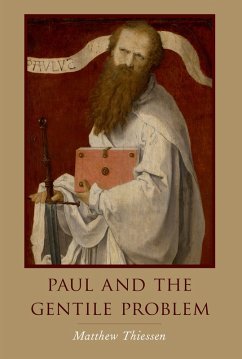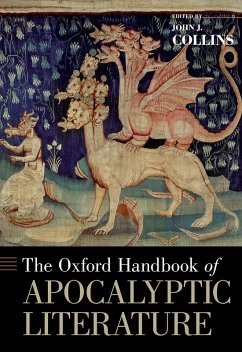
He Will Save You from the Deadly Pestilence (eBook, PDF)
The Many Lives of Psalm 91

PAYBACK Punkte
5 °P sammeln!
Jews and Christians alike have made Psalm 91 one of the most commonly used and cited parts of the Bible. For over two thousand years, the psalm has played a pivotal role in discussions of theology and politics, of medicine and mysticism. In He Will Save You from the Deadly Pestilence, acclaimed religion scholar Philip Jenkins illustrates how the evolving uses of Psalm 91 map developing ideas about religion and the supernatural. Depending on the era, Psalm 91 is protective; it is triumphalist; it is messianic; it is millenarian and apocalyptic; it is therapeutic. It has shaped theories of polit...
Jews and Christians alike have made Psalm 91 one of the most commonly used and cited parts of the Bible. For over two thousand years, the psalm has played a pivotal role in discussions of theology and politics, of medicine and mysticism. In He Will Save You from the Deadly Pestilence, acclaimed religion scholar Philip Jenkins illustrates how the evolving uses of Psalm 91 map developing ideas about religion and the supernatural. Depending on the era, Psalm 91 is protective; it is triumphalist; it is messianic; it is millenarian and apocalyptic; it is therapeutic. It has shaped theories of politics and government. In different ages, it has borne many different names: the Song of Evil Spirits, the Soldier's Psalm, and most broadly, the Protection Psalm. As the Song of Plagues, it has gained a whole new relevance in an age of global pandemic. In the New Testament, Satan himself quotes the psalm, and ever since, that text has both reflected and shaped changing concepts of evil and the demonic. It can be read as a lesson in exalted monotheistic theology, but it was and is used for magical purposes, including for exorcism and demon-fighting. As threats have evolved in various societies, so interpretations of Psalm 91 have developed to accommodate each new reality. The psalm's language about demons and evil forces has repeatedly come into play when Christianity encounters other religious traditions. At every stage, interpretations have to be understood in the larger context of social, spiritual, and practical concernsindeed, a biography of Psalm 91 is also a history of critical themes in Western religion.
Dieser Download kann aus rechtlichen Gründen nur mit Rechnungsadresse in A, B, BG, CY, CZ, D, DK, EW, E, FIN, F, GR, HR, H, IRL, I, LT, L, LR, M, NL, PL, P, R, S, SLO, SK ausgeliefert werden.













